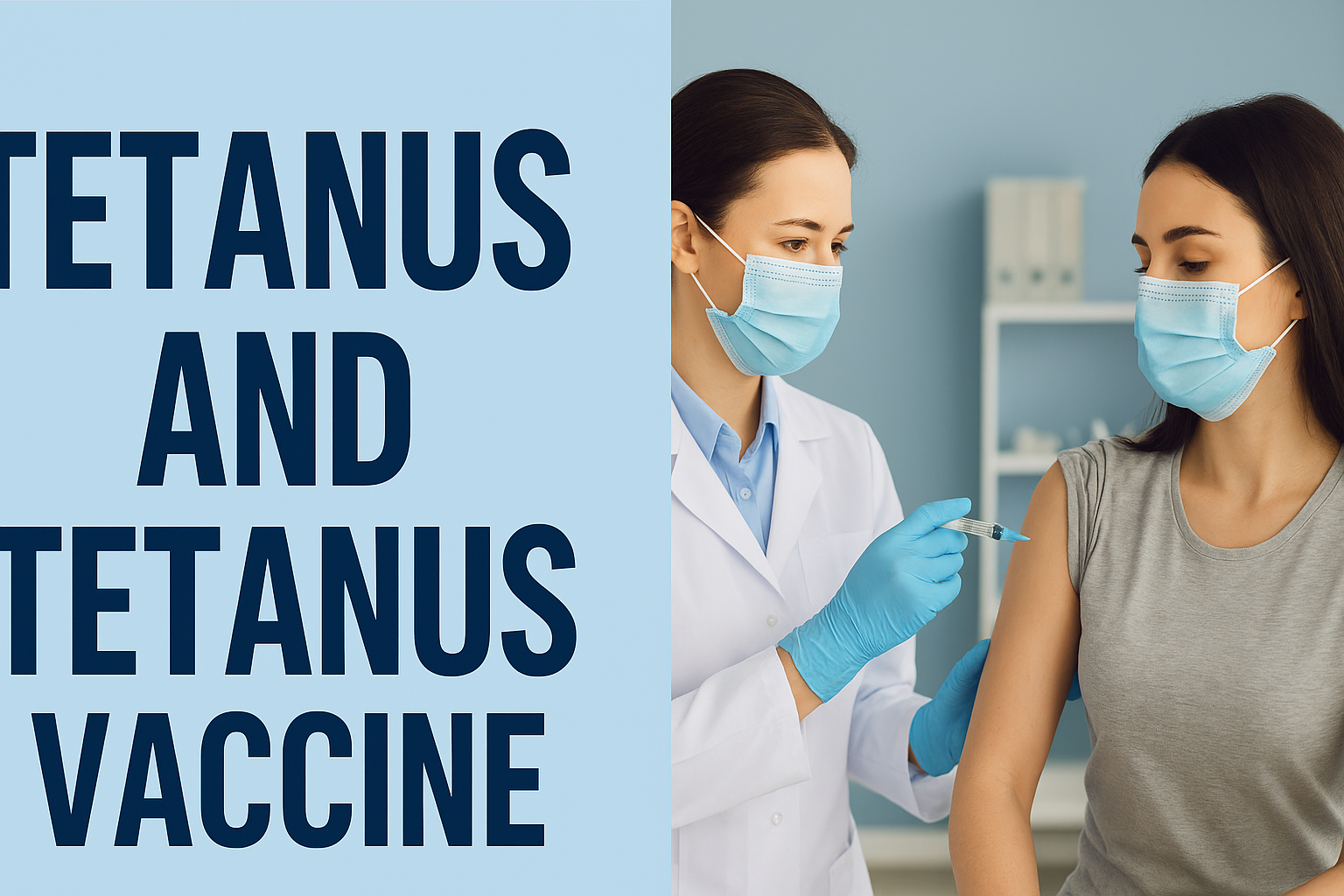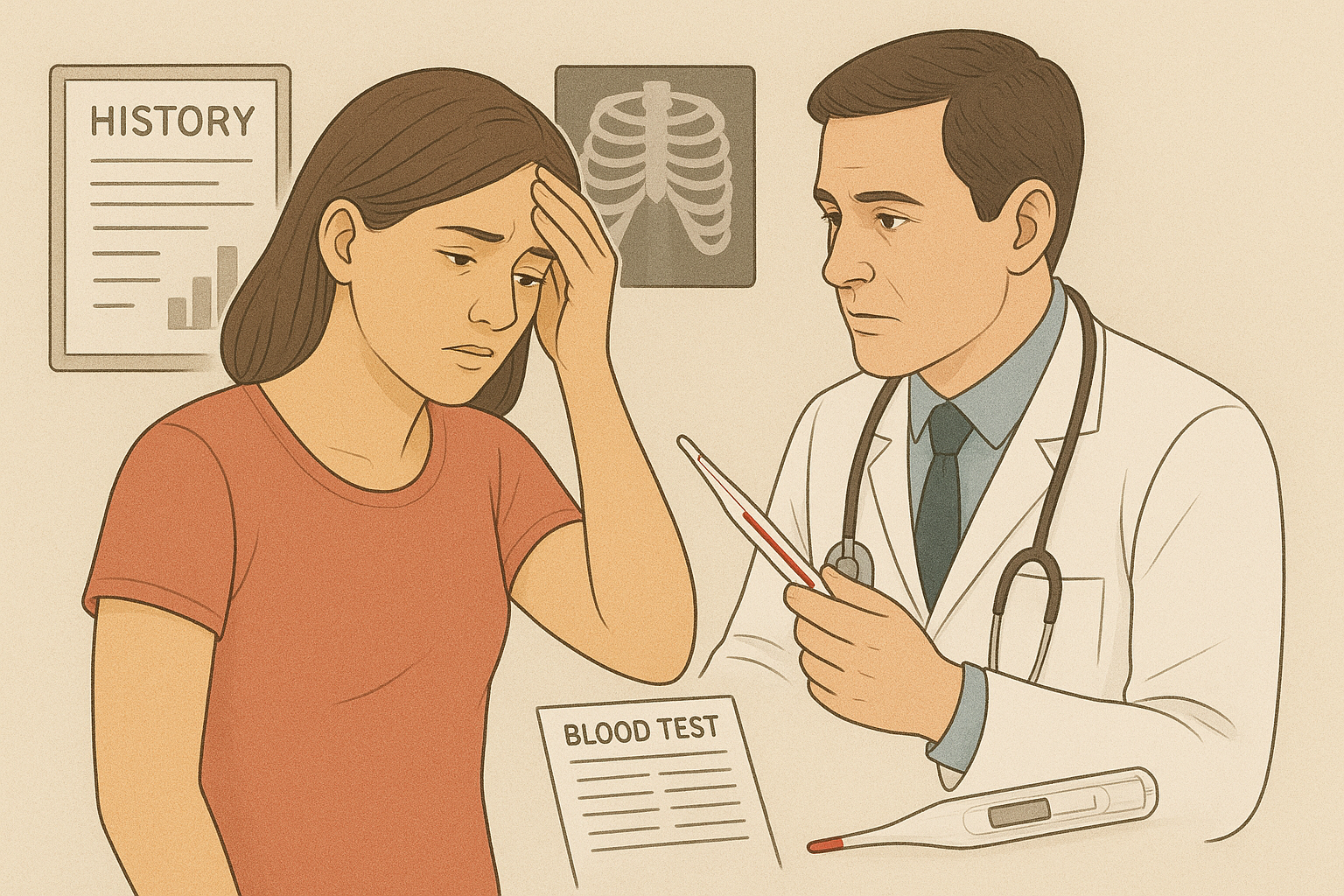Tetanus, often called “lockjaw”, is a serious but preventable disease caused by the bacterium Clostridium tetani. Despite being rare in countries with strong immunization programs, it still poses a risk in many parts of the world, particularly where vaccination rates are low. Understanding what tetanus is, its complications, and the role of the tetanus vaccine is vital for personal and community health.
What is Tetanus?
Tetanus is an infectious disease caused by a toxin released by Clostridium tetani, a bacterium found in soil, dust, and animal feces. The bacteria enter the body through cuts, wounds, or burns, especially when the injury is contaminated.
Once inside, the toxin attacks the nervous system, causing muscle stiffness and painful spasms. Without timely treatment, tetanus can lead to severe complications and even death.
Symptoms of Tetanus
Early recognition of symptoms is crucial. Common signs include:
- Jaw stiffness (lockjaw)
- Difficulty swallowing
- Muscle spasms, often starting in the neck and jaw
- Stiffness of abdominal muscles
- Seizures in severe cases
Why is Tetanus Dangerous?
Tetanus is not contagious, meaning it does not spread from person to person. However, the infection is life-threatening because the toxin directly affects the nervous system. Complications may include:
- Breathing difficulties due to muscle spasms
- Broken bones caused by severe muscle contractions
- Long-term disability
- Death if untreated
The Role of Tetanus Vaccine
The tetanus vaccine is the most effective way to prevent tetanus. It works by stimulating the body’s immune system to produce antibodies against the toxin.
Types of Tetanus Vaccines:
- DTaP – Protects against diphtheria, tetanus, and pertussis (for infants and children).
- Tdap – A booster shot for adolescents and adults.
- Td – A booster vaccine for tetanus and diphtheria only.
Who Needs the Tetanus Vaccine?
- Children: Should receive the full course of DTaP vaccines as per immunization schedules.
- Adults: Need a booster every 10 years.
- Pregnant women: Recommended to get Tdap during each pregnancy to protect the newborn.
- Injured individuals: Those with deep or contaminated wounds may need a booster if the last dose was more than 5 years ago.
Public Health Importance
Tetanus prevention through vaccination is part of global health initiatives. The World Health Organization (WHO) emphasizes routine immunization, particularly in developing countries, to eliminate neonatal tetanus—a preventable cause of infant deaths.
Key Tips for Prevention
- Keep vaccinations up to date.
- Clean wounds immediately and thoroughly.
- Seek medical care for deep or contaminated wounds.
- Ensure booster shots every 10 years.
Conclusion
Tetanus is a preventable but dangerous disease. The tetanus vaccine remains the best defense, protecting both individuals and communities. Staying updated with vaccination schedules not only saves lives but also supports public health campaigns aimed at eradicating tetanus worldwide.




